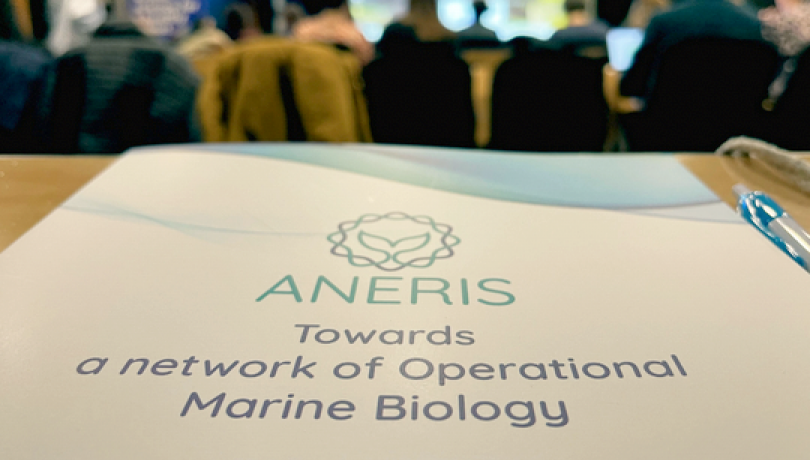The initiative, led by the ICM-CSIC, proposes to implement the new concept of “Operational Marine Biology” to provide long-term systematic measurements of the ocean and coastal life.

Long-term monitoring of marine-life is crucial to know the ocean’s health. However, sometimes lack of resources hinders continuous data acquisition. Now, the Institut de Ciències del Mar (ICM-CSIC) will contribute to this monitoring through ANERIS, an ambitious European project that seeks to develop the next generation of scientific tools for sensing marine-life automatically.
The project’s main goal is to implement the concept of “Operational Marine Biology” (OMB), understood as a biodiversity information system for systematic and long-term routine measurements of the ocean and coastal life, and their rapid interpretation and dissemination.
For this, different types of marine life-sensing technologies, from genomics or imaging-biooptics to participatory sciences, will be designed and implemented during the next 4 years in collaboration with all the interested stakeholders: academia, industry, civil society and government
“We need to get an overall picture of ocean and coastal life to address the upcoming environmental challenges in our seas”, comments the ICM-CSIC researcher Jaume Piera, coordinator of the project, who adds that “With ANERIS we plan to cover many of the temporal, spatial and taxonomic gaps we may identify nowadays”.
Once designed, the different tethodologies will be tested and validated in different case studies, involving the ANERIS innovations, commercial instruments to be improved and different world-class marine research infrastructures (RI).
The role of the citizen science
Citizen science will play an important role in participatory based technologies. In this regard, MINKA, one of the marine citizen observatories at the ICM-CSIC, will be used as the technological framework for innovating and developing new participatory tools.
“We plan to design the next generation of species automatic identification based on hybrid intelligence, with interactions between humans and artificial intelligent agents”, mentiones Ivan Rodero, CEO in QuantaLabs, one of the project collaborators.
Overall, the project proposes to benefit all the actors involved in what is known as “the quintuple helix framework of innovation”, which are the academy -with new life-sensing technologies to use in research-; the industry -with new technologies and methods to exploit-; the governments -with improved observational systems and data products to be used in environmental management directives-; the civil society -empowered through the proposed participative technologies and large collaborative networks-; and the marine research infrastructures -integrating a new generation of sensing instruments and methods, and training their staff on the use of those new technologies-.